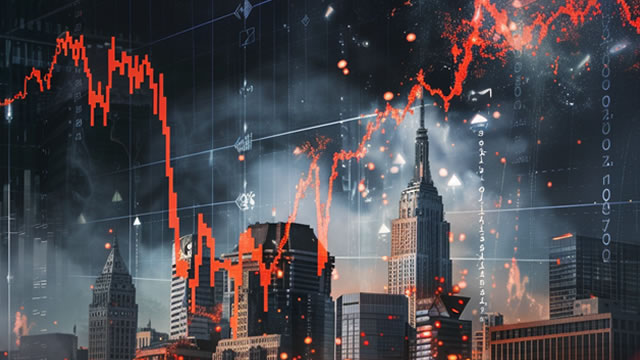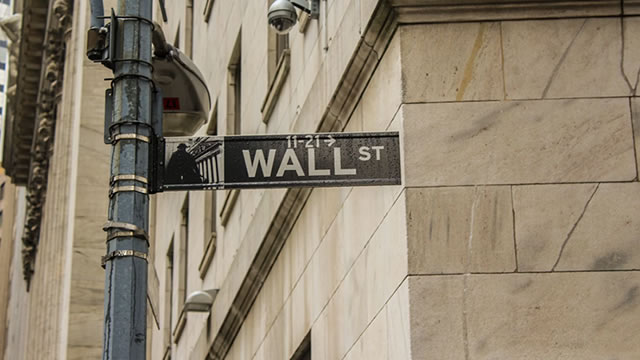Market Indexes Holding Gains: A Silver Lining Amid Disappointing Consumer Confidence Report
The major market indexes have been holding steady despite the recent release of a disappointing consumer confidence report. This report, which hit a four-year low, was driven by fears of future economic deterioration and higher prices due to tariff threats.
Consumer Confidence: A Key Economic Indicator
Consumer confidence is an important economic indicator that measures how optimistic or pessimistic consumers are about the current and future state of the economy. It is based on their perceptions of their personal financial situation and the overall economic outlook. A decrease in consumer confidence can lead to reduced spending, as consumers may feel less inclined to make large purchases if they are uncertain about the economic future.
Market Indexes: A Mixed Picture
Despite the poor consumer confidence numbers, the major market indexes have continued to hold gains. This suggests that the correction low may be behind us, at least for now. It is important to note, however, that market movements are complex and multifaceted, and there are many factors at play beyond just consumer confidence.
Tariffs and Inflation: Key Concerns
The consumer confidence report was driven in large part by concerns over tariffs and inflation. The ongoing trade dispute between the United States and China has led to increased uncertainty and fear of higher prices for consumers. These fears have been exacerbated by threats of additional tariffs, which could further increase inflation and erode consumer purchasing power.
Impact on Individuals
For individuals, the impact of the consumer confidence report and the broader economic uncertainty can be felt in a number of ways. Reduced consumer confidence can lead to reduced spending, which can in turn lead to job losses and a slowing economy. Higher prices due to inflation can make it more difficult for individuals to afford basic necessities, such as food and housing. Additionally, uncertainty over the economic outlook can lead to increased stress and anxiety.
- Reduced spending: Individuals may be less likely to make large purchases, leading to slower economic growth.
- Job losses: Economic uncertainty can lead to job losses, particularly in industries that are heavily reliant on consumer spending.
- Higher prices: Inflation can make it more difficult for individuals to afford basic necessities.
- Increased stress: Economic uncertainty can lead to increased stress and anxiety.
Impact on the World
The impact of the consumer confidence report and the broader economic uncertainty is not limited to individuals, but can also have far-reaching effects on the world. Reduced consumer spending can lead to a slowing economy, which can in turn lead to lower economic growth and increased debt for governments.
- Slowing economy: Reduced consumer spending can lead to a slowing economy.
- Government debt: A slowing economy can lead to increased debt for governments, as they may need to spend more to stimulate growth.
- Global trade: Economic uncertainty can lead to disrupted global trade, as companies may be less likely to invest in new projects or expand their operations.
- Geopolitical tensions: Economic uncertainty can also lead to increased geopolitical tensions, as countries may seek to protect their own interests and compete for resources.
Conclusion
The recent consumer confidence report, which hit a four-year low, is a reminder of the economic uncertainty that exists in the world today. While the major market indexes have continued to hold gains, it is important to remember that market movements are complex and multifaceted, and there are many factors at play beyond just consumer confidence. For individuals, the impact of economic uncertainty can be felt in a number of ways, including reduced spending, job losses, higher prices, and increased stress. For the world, the impact can be far-reaching, including a slowing economy, increased government debt, disrupted global trade, and increased geopolitical tensions. As we move forward, it is important to stay informed and to take steps to protect ourselves and our financial well-being.
Despite the challenges, it is important to remember that the economy is dynamic and constantly evolving. While there may be periods of uncertainty and volatility, there are also opportunities for growth and prosperity. By staying informed and taking a long-term perspective, we can navigate the economic landscape and build a strong foundation for the future.





